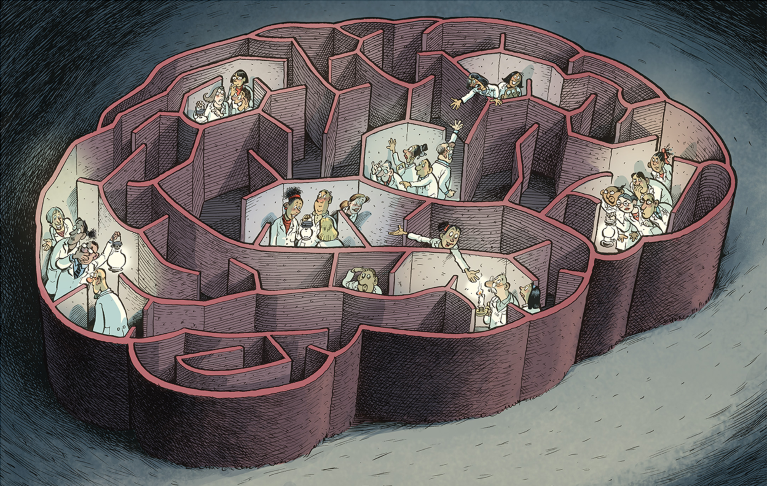- NEWS FEATURE
- Correction 25 January 2024
The consciousness wars: can scientists ever agree on how the mind works?

Illustration: David Parkins
Access options
Access Nature and 54 other Nature Portfolio journals
Get Nature+, our best-value online-access subscription
$29.99 / 30 days
cancel any time
Subscribe to this journal
Receive 51 print issues and online access
$199.00 per year
only $3.90 per issue
Rent or buy this article
Prices vary by article type
from$1.95
to$39.95
Prices may be subject to local taxes which are calculated during checkout
Nature 625, 438-440 (2024)
doi: https://doi.org/10.1038/d41586-024-00107-7
Updates & Corrections
-
Correction 25 January 2024: The graphic in this feature incorrectly stated that integrated information theory predicts that any complex system could in principle be conscious. In fact, the system needs to have the right kind of information structure, and an AI would not meet this criterion.
References
Fleming, S. M. et al. Preprint at PsyArXiv https://osf.io/preprints/psyarxiv/zsr78 (2023).
Crick, F. & Koch, C. Semin. Neurosci. 2, 263–275 (1990).
Chalmers, D. J. J. Conscious. Stud. 2, 200–219 (1995).
Cogitate Consortium. Preprint at bioRxiv https://doi.org/10.1101/2023.06.23.546249 (2023).

 Decades-long bet on consciousness ends — and it’s philosopher 1, neuroscientist
Decades-long bet on consciousness ends — and it’s philosopher 1, neuroscientist
 Consciousness theory slammed as ‘pseudoscience’ — sparking uproar
Consciousness theory slammed as ‘pseudoscience’ — sparking uproar
 Decoding the neuroscience of consciousness
Decoding the neuroscience of consciousness







